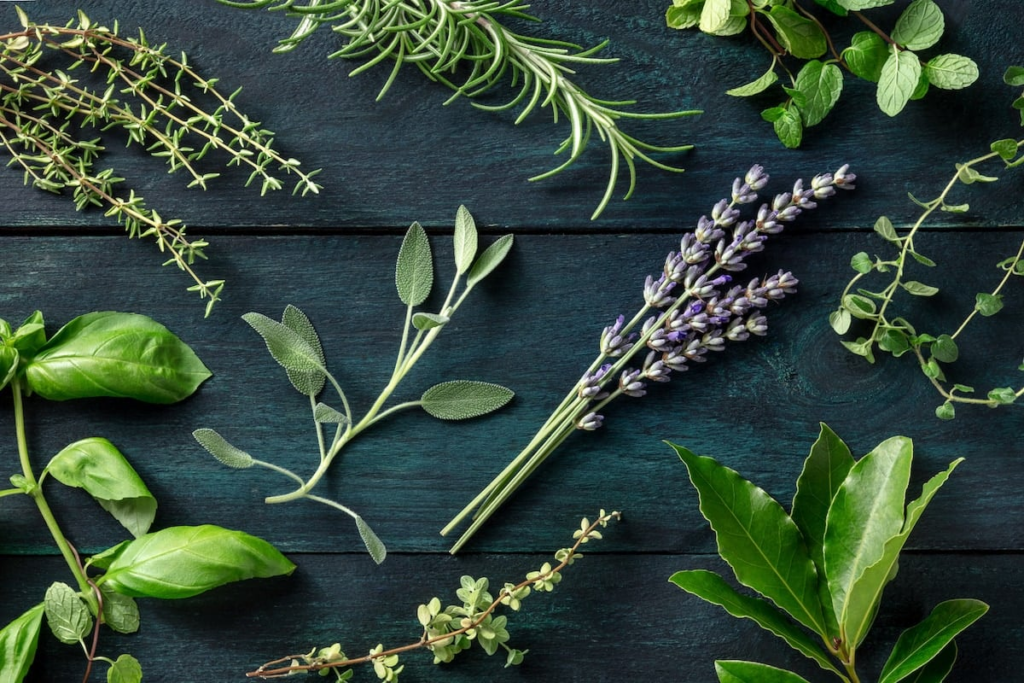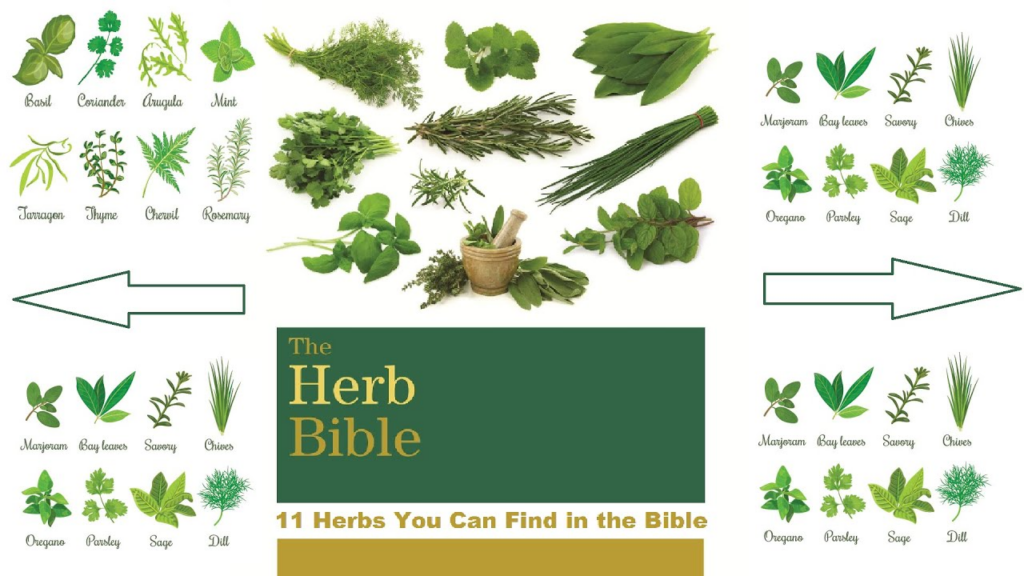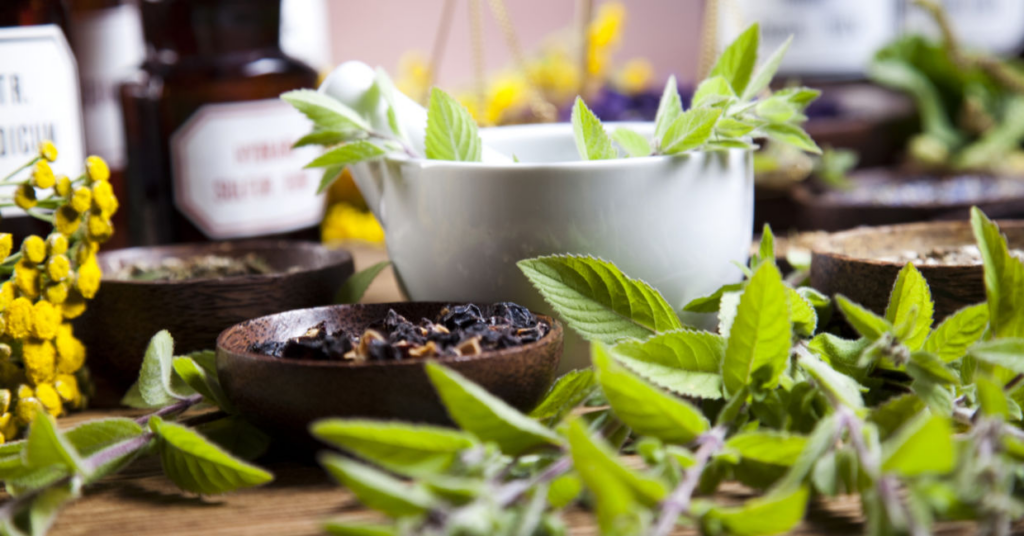
Have you ever attempted to take a cup of soothing chamomile tea while sick, or put a little bit of lavender oil on your temples for a headache? Using plants for medicinal purposes is an ancient practice that has been in existence for thousands of years.
The Bible, one of the cornerstones of Western civilization, also contains some interesting insights into this tradition. So let us now enter into the enchanting realm of herbology and consider what it says about them from its pages.
How are herbs referenced in the Bible?
The Bible references herbs as valuable for food and medicine, highlighting their role in creation and sustenance. They are often associated with healing, nourishment, and spiritual significance, reflecting the belief in their God-given properties for human benefit.
Herbs in the Bible refer mainly to parts of God’s creation to be used by man. The very first mention is found in Genesis 1:29, where God speaks of plants and herbs given for food to man. In view of their use, they are also seen as needing nourishment. Herbs such as hyssop and frankincense are used for purification and worship.
Thus, we find a dual role of herbs in the Bible, not only in healing the sick or injured body but also in spiritual rituals. Man views health and well-being as an integral aspect of satisfying the body, mind, and spirit.
What specific herbs are mentioned in the Bible?
Specific herbs mentioned in the Bible include hyssop, frankincense, myrrh, and mint. These herbs are noted for their uses in healing, anointing, purification, and offerings, reflecting their cultural and spiritual significance in biblical times.
Hyssop is cited for purification rituals; frankincense and myrrh were gifts to Jesus, raying healing and divinity. Mint was spoken of with regard to tithing, pointing out its value. Hence, herbs held a triple order in medicinal, culinary, and spiritual roles, quite inseparable from daily life and worship. Their mention in these contexts brings their place forth in ancient practices and symbolizes spiritual purity and divine connection.

How were herbs used for healing in biblical times?
Herbs in biblical times were used for healing wounds, treating ailments, and maintaining health. They were often combined in remedies and salves, demonstrating the knowledge of their medicinal properties and importance in traditional healing practices.
Herbal medicine was part of ancient medicine, for instance, aloe for skin healing and the balm of Gilead to assuage wounds. Herbal teas and poultices treated sickness in many instances, therefore indicating the health base founded on natural resources.
The practice is reflected through the Bible healing stories involving treatment using figs for boils. These references show the role of herbs in maintaining physical health and their dependence upon the bounty of nature for health.
What role did herbs play in biblical rituals?
Herbs plays a significant role in biblical rituals, used in offerings, anointing oils, and purification processes. They symbolized spiritual cleansing, sanctity, and divine connection, integral to worship and religious ceremonies.
Herbs, such as frankincense and myrrh, are mentioned in the Bible as forming a part of rituals and offerings and symbolizing prayer and holiness. Anointing oils were prepared with herbs to consecrate priests and sacred objects. Hyssop was used in purification rites, symbolizing cleansing and renewal.
All these practices only testify to the symbolic and spiritual uses of herbs, indicating faith in their power to link the material and divine worlds. Their use in rituals only strengthened the role of herbs within the sphere of spiritual life and granted extra sacredness to religious ceremonies.
How does the Bible view the relationship between herbs and health?
The Bible views herbs as God-given resources for health and healing, emphasizing their natural benefits. They are seen as part of creation’s provision for human well-being, aligning physical and spiritual health through divine wisdom.
The biblical view perceives herbs as very important to health, provided by God to sustain human life. Verses such as Ezekiel 47:12 seem to allude to their healing properties and show they are both a means of nourishment and medicine.
This perspective encourages a holistic life in health, with a proper balance between nourishment for the physical person and nourishment for spiritual growth. The Bible encourages stewardship of creation through identification with herbs in their natural benefits, hence using these gifts of nature in the sustenance of well-being.

Are there biblical guidelines for using herbs?
The Bible provides implicit guidelines for using herbs, emphasizing their role in healing and sustenance. It encourages mindful use, reflecting gratitude and respect for nature’s provisions, aligning with spiritual and physical well-being.
Although the Bible does not state it explicitly, responsible stewardship and gratitude in the usage of herbs are offered. It suggests they should be used for healing purposes and as nourishment based on the verses relating to their medicinal and dietary functions.
Such a model presents respect toward creation, encouraging careful use and reverence for natural resources. On this basis, the Bible prescribes the proper use of herbs concurred with spiritual beliefs by prescribing a balanced lifestyle that integrates faith into everyday practices.
How do biblical herb references influence modern herbal practices?
Biblical herb references influence modern herbal practices by highlighting traditional uses and spiritual significance. They inspire a holistic approach to health, integrating natural remedies with spiritual beliefs for comprehensive well-being.
It is upon these biblical references that modern herbal practices base their study and research for insight into the historical and cultural uses of herbs. These references provide a foundation for looking into traditional remedies and their spiritual symbolism, which inspires a holistic view of health.
Such incorporation of natural and spiritual approaches cultivates practices that answer to physical, emotional, and spiritual needs. Modern herbalists, by valuing ancient wisdom, adopt practices respectful of tradition but advancing natural health.
Wrapping Up!
The Bible recognizes the historicity behind the utilization of herbs as healing agents thereby indicating long practice in herbal medicine. It does not give specific medical instructions but implies that plants can be used to foster good health. Today, the best way to promote well-being might involve combining professional advice with alternative therapies such as acupuncture or even reiki sessions!
Whether taken through faith alone or coupled with practical steps like drinking herbal tea our journey towards recovery should always remain grounded in nature because that is what the bible teaches us about healing through herbs.

